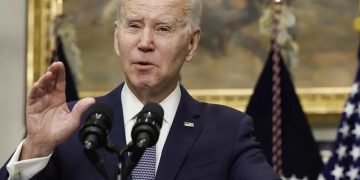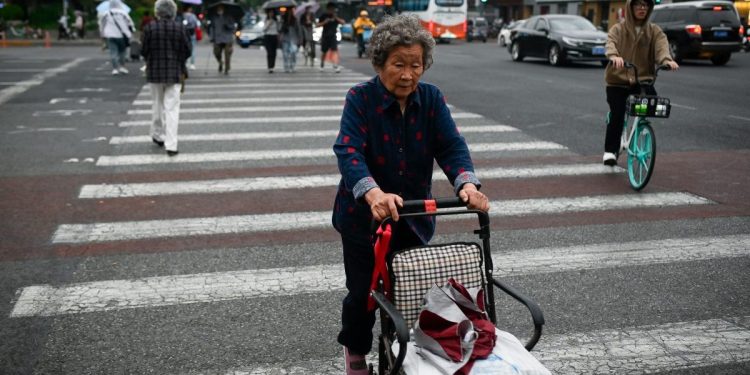For decades China was the world’s most populous country. But that’s changed. Its population has peaked, and is now falling.
The country has achieved high levels of economic growth for four decades, reducing poverty and raising per capita incomes. Between 1978 and 2018 China’s economy grew by an average of 9.8 per cent per annum. Today it is the second biggest economy in the world after the US.
China’s demographic profile has played a key role in its development. A high number of births in the 1950s and 1960s, alongside gains in public health and basic education, meant that, from the 1970s, there was a boom in China’s working age population size and share. This is estimated to have contributed some 15% of China’s growth over the period 1980 to 2000.
China capitalised on its demographic profile through policies which captured that working-age population.
I’ve been studying the political economy of demographic change in China, and Africa-China relations, for two decades. Most recently, I wrote a paper on China’s demographic peak.
Part of the paper unpacks lessons Africa can take from China’s development strategy, even though China is very different from African nations in many respects.
African countries differ among themselves in demographic profile too. So I have created two broad categories – those with a high percentage of young people, and those with a sizeable proportion of working age people – and set out policies they could focus on now.
China’s adjustments
China was concerned that its population would first become “old” before it became per capita economically rich. As early as the 1980s – when China was still young and poor – the fear was that this would hamper long-run development.
To avoid this, it adjusted its development policy direction.
I have looked at a number of aspects of how this unfolded, and for example the unique circumstance in China around the implementation of a One Child Policy. Here, however, I simplify the overall Chinese approach to economic demography and development over time into two simplified aspects that are relevant to policy makers and development practitioners in the context of African development.
First, China captured the potential of the low-wage demographic dividend of its “young” and “poor” working-age population of the late 1970s. Second, it prepared to sustain the economy and hundreds of millions of elders from the 2020s especially.
Following that baby boom in the 1950s and 1960s, between the mid-1970s and 2010 China’s working-age population share (as measured by people aged 15-65) would increase from 55% to 73% of the total population.
Capturing the productivity potential of their working-lifetime helped drive reforms that opened up China’s economy from late 1978. A major aspect of opening up to trade and foreign direct investment was a coastal development strategy. Special economic zones were set up to attract foreign investment.
In addition, in the 1990s it expanded and upgraded its university sector.
During this period China also made policy reforms that would ultimately support new sources of growth for later when China’s frontier economic regions would need to be driven by quality instead of quantity of labour. These included manufacturing and services with higher added value, including pension and wealth management. These are sectors that China is promoting today, with mixed success.
In parallel, from the 1980s and in the 1990s China incrementally set up the basic architecture of an aged care policy and legislative framework. Policymakers began to build a national pension and healthcare system, more intensively from the 2000s. It started preparing to shift from a high case load of infectious illness towards a greater load of chronic illness as the population aged. And it prepared to offer a very basic level of health insurance to even the poorest and most remote.
Since the 2010s care for the aged has received even more attention.
By the time China’s working-age population peaked in 2010, the basics were in place for the hundreds of millions expected to become pensioners over the 2010s, 2020s and 2030s. To prevent them from falling back into poverty in older age, China has set up basic income and health insurance.
Lessons for Africa
China’s One Child policy certainly had a lot to do with its approach to development. But the approach is relevant to all countries, including those in Africa where life expectancy is increasing. This typically means the population share of elders is rising.
African countries cover a broad spread of the demographic spectrum. For example, Mauritius is already considered to be “ageing”, as measured by the standard metric: more than 7% of citizens are aged 65 and over.
By contrast, Niger is the world’s “youngest” country. Just over 2% of its population are 65 and over. Many countries, however, face a near or medium-term future where they have a high population share of working-age citizens who will want jobs, food and lifetime opportunity. This is thanks to rising life expectancy in most countries increasing the number of older people, and falling birth rates concurrently reducing the population share of younger citizens.
So what should countries be doing?
“Young” countries need to invest more in basic healthcare, especially maternal health. Basic healthcare ultimately reduces the fertility rate as confidence grows in the survival of each child.
They also need to invest in education, particularly primary school for all children.
A handful of African countries are in the demographic dividend window – they have a favourable share of working-age citizens. These include Morocco and South Africa. Their task should be to focus on job creation and a business environment that will attract labour-intensive investment. This will help maximise jobs.
At the same time, it’s important to elevate productivity per worker and adapt to new technological frontiers. That will result in a cluster of well-trained graduates, in areas of science and technology especially.
They also need to prepare the economy and society to carry an elevated share of elders in the later middle-income phase of development.
Both China and Mauritius are already struggling to formulate a sustainable basic elder pension system.
Getting old before rich is now more common
China’s economic demography – getting old before getting rich – is now relatively mainstream.
In this century, improvements in public health, access to family planning technologies, and the education of girls, among other factors, means that many developing countries are now experiencing falling mortality and a total fertility rate at lower per capita incomes.
This has led to many countries getting older without getting rich, presenting the threat of many poor elders and stagnating national economic prospects.
And this is why it is important to advance economic development policies in step with demographic change. This is what China did when it was still poor and young.
By learning from China’s experiences and creating clear policies, African countries can grasp their economic and demographic potential.![]()
Lauren Johnston, Senior Researcher, South African Institute of International Affairs and Associate Professor at the China Studies Centre, University of Sydney
This article is republished from The Conversation under a Creative Commons license. Read the original article.



















![[Kenya] Digital credit provider Tala disbursed Sh240 billion in loans in eight years 19 [Kenya] Digital credit provider Tala disbursed Sh240 billion in loans in eight years](https://theafricanbusiness.com/wp-content/uploads/2023/02/TALA-APP-360x180.jpg)













